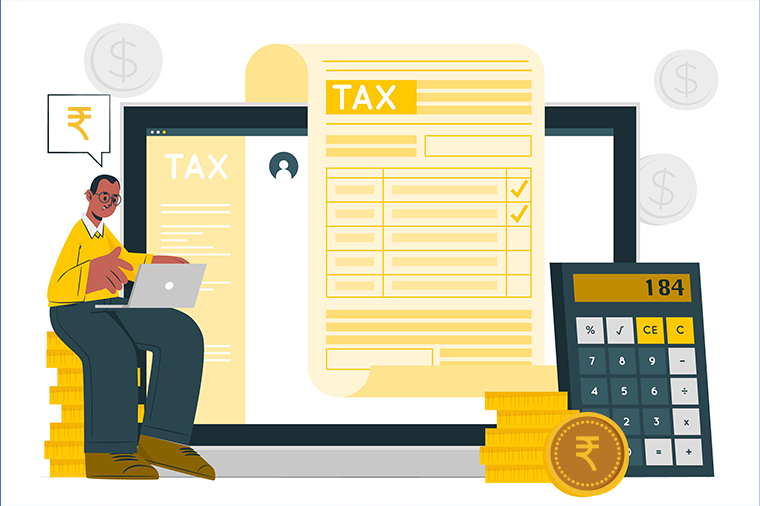MP Ministers will Continue to be Exempt from Income Tax as Cabinet upholds 52-year-old rule
In a significant development, the Cabinet has decided to uphold a 52-year-old legislative provision that exempts ministers in Madhya Pradesh from paying income tax. The decision, which has been met with mixed reactions from various sectors of society, reaffirms the state's stance on a law that has long been a subject of debate among policymakers, tax experts, and the general public.
Historical Context of the Exemption
The exemption dates back to 1971, when it was introduced to alleviate the financial burdens of ministers who often had to manage expenses arising from their official duties and constituency service. The rationale was that these expenses were often not reimbursed by the state, thus justifying the need for tax relief. Over the decades, this rule has been periodically reviewed, with the latest deliberation by the current cabinet leading to its continuation.
Details of the Cabinet’s Decision
The recent cabinet meeting, chaired by the Chief Minister of Madhya Pradesh, concluded that the exemption should continue, citing the unchanged nature of the financial dynamics of ministerial duties. The government spokesperson outlined that the exemption covers the salary, allowances, and other perks associated with ministerial roles.
"The decision to continue this exemption was taken after careful consideration of all aspects, including the financial implications and the administrative precedence," stated the government spokesperson. He further added that this move ensures that ministers can perform their duties without financial constraints.
Reactions to the Decision
The decision has sparked a broad spectrum of reactions:
- Support from Political Ranks: Many within the political community support the decision, arguing that it allows ministers to serve without undue financial pressure and focus on governance.
- Criticism from Tax Experts: Tax experts and fiscal conservatives have criticized the move as being regressive and contrary to principles of tax equality. "In an era where transparency and equality are increasingly demanded by the public, such exemptions seem out of place," commented a leading tax consultant.
- Public Response: The general populace has shown mixed reactions. Some segments understand the historical reasons behind the rule, while others see it as an undue privilege in a system that already places heavy tax burdens on the average citizen.
Legal and Economic Implications
Legal experts argue that the continuation of this exemption raises significant questions about tax policy and equity in the state. "There is a fine line between accommodating the financial needs of public servants and maintaining a fair tax system for all," explains a senior lawyer specializing in tax law.
Economically, the implications are also significant. The exemption could mean considerable fiscal costs to the state exchequer, especially at a time when funds are needed for various developmental and welfare projects.
Comparative Analysis with Other States
The situation in Madhya Pradesh is somewhat unique in India. While some states provide certain tax benefits to their legislators and ministers, a complete exemption from income tax is rare. States like Tamil Nadu and Kerala have revised similar provisions over the years to strike a balance between compensating their ministers and ensuring a fair tax system.
Perspectives from Political Science
According to political analysts, this decision could have implications beyond fiscal policy. "Maintaining such exemptions can affect public perceptions of political transparency and trust in government," noted a professor of political science. This dimension is crucial as political integrity and transparency are increasingly valued by the electorate.
Future Directions
Looking forward, the government might need to consider the following steps:
- Periodic Review: There is a call from various quarters for regular reviews of this exemption, ensuring it remains justified under contemporary economic and social conditions.
- Public Disclosure: Enhancing transparency about the financial benefits and allowances received by ministers might help mitigate public concerns about discrepancies in the tax treatment between public officials and citizens.
- Alternative Compensation Models: Exploring other models to compensate ministers for their official expenses without resorting to tax exemptions is another approach. This could involve clear stipends or reimbursements linked directly to the duties they perform.
The decision to uphold the tax exemption for ministers in Madhya Pradesh is a continuation of a decades-old policy that reflects the complex interplay between governance, finance, and public perception. While it supports the administrative ease of ministers, it also poses challenges for fiscal equity and public trust in the governmental system. As Madhya Pradesh moves forward, the effectiveness and fairness of such fiscal policies will continue to be a topic of lively debate and critical examination, reflecting broader trends in governance and tax policy across India.




